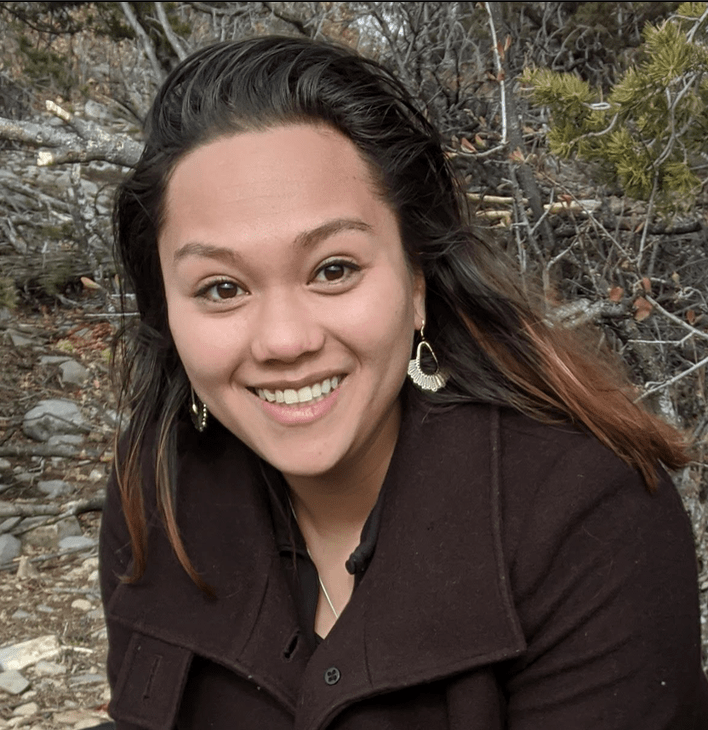The Daily sat down with 2021 Truman Scholar Mercedes ‘Sadie’ Blancaflor ’22 to discuss her advocacy work and future goals. Blancaflor and Nicholas Hakes ’22 were among 62 college students nationwide chosen for the scholarship, which provides career and financial support for students pursuing public service careers. Hakes declined an interview with The Daily.
Blancaflor is a climate justice advocate of Valdez, Alaska who has developed resources to empower youth around the world. As an earth systems and anthropology double major who plans to pursue a coterm in earth systems, Blancaflor is committed to advocating for inclusive and resourceful futures and is using her platform to create a sustainable world for marginalized communities. Portions of this interview have been edited for concision and clarity.
The Stanford Daily [TSD]: What sparked your passion for climate change and immigration?
Sadie Blancaflor [SD]: I’ve been plugged into the climate space for so long. I started doing activism in high school where I really saw the impacts of climate change happening on my various communities. My freshman year of college, I started seeing the wildfires and the smoke in the air — it was insane to me that we’re seeing the impacts of climate change right now and we’re still talking about how to move away from fossil fuels and not thinking about how we support the communities that are being impacted right now.
In my future work, I’m interested in supporting climate refugees from a legal standpoint — providing direct service and helping support them through the immigration system. I’m also broadly interested in immigration reform. How can we revise the current way in which our immigration is set up to better account and support folks that have been displaced as a result of extreme natural disasters and extreme weather events?
My family is from the Philippines, and entire islands are going underwater. The way in which we talk about climate change is so rooted in how we mitigate fossil fuel emissions. I’ve been in this climate space for five years now, and seeing the way in which we’re talking about climate change as a whole has been addressing more of the adaptation side of things in which we are studying and asking ourselves: how folks are already being impacted, how can we best support them and how can we help support folks through these extreme weather events?
I think climate change is the biggest issue that our society is facing. And as someone who holds so many different intersecting identities — being low-income, being a person of color — I see climate change as this huge problem that’s going to impact the communities that I care about. I think at the core is climate change is the biggest issue facing our society today, and we all need to be doing things to address it.
TSD: What professors, courses, students, etc. have been influential in your advocacy work?
SD: Rob Dunbar is hands down my favorite human being on the planet. He’s given me so much wisdom, advice and insight, and the man has traveled all over the world. He’s fabulous! I also have to give a major shout-out to my Stanford newcomer guide Richard Nevle, Joe Nation in the Public Policy Program and Janet Martinez in the law school.
I’ve taken a lot of classes with Michael Wilcox and Krish Seetah. Those two have been really influential in thinking that this isn’t just a matter of science, like carbon emissions and parts per million. Climate change is fundamentally an issue of humans. How do we think about human natural systems and the way in which we’re going to center people as a focus of the climate crisis and build out resources and support, for especially more marginalized communities?
In terms of organizations, huge shoutout to Synergy — I loved living in Synergy. Cooperative living places have been so instrumental in the way in which I see the world and experience the overall Stanford experience.
TSD: How do you practice self care and remain centered while engaging in advocacy and public service work?
SD: We’re running up against this very strict timeline of mitigating these vast amounts of emissions, and it’s so easy to experience burnout. My friend was hospitalized because she just wasn’t sleeping or eating and there’s this martyrdom to climate work. I guess to answer your question about self care, it means taking out time to sleep and do basic small things that drastically improve the way you live your life. So definitely sleep, taking time to hang out with friends and knowing your limits.
TSD: What are your goals for the future?
SD: I’m planning on doing a coterm in the earth systems department in the MS program, and then I am going to be applying for law school and focusing on climate and immigration law. I’m really interested in getting experience working firsthand working with immigrants who have been displaced as a result of extreme weather events as a result of climate change and then using those experiences to inform broader immigration reform work because we still have a ways to go.
TSD: What are some words of advice you would like to share with students who are interested in a career in public service and advocacy?
SD: Everything needs to be rooted in the people that you are serving. It works a lot like active listening and not thinking that you have all the answers. This is especially something that you learn in anthropology: the best information that you get is when you let other people talk and really listen. It looks a lot like providing these people the space and time to speak what’s on their mind and what’s important to them, and not necessarily what is important to you, and using that to inform your broader public service work.
Victoria Hsieh contributed reporting.
A previous version of this article misspelled Richard Nevle’s name. The Daily regrets this error.
